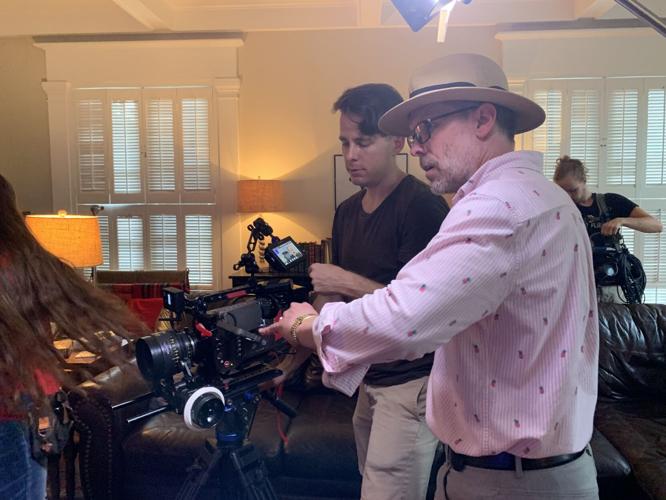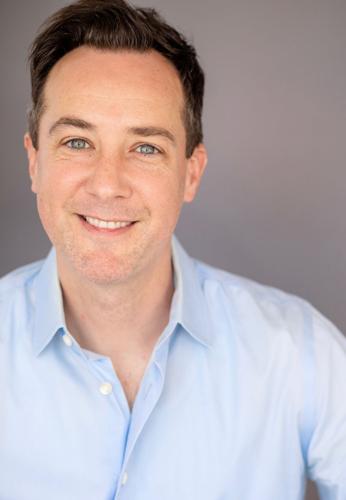The writers are back to work after a monthslong strike by the Writers Guild of America, leaving the actors' union still on strike, front and center. Back in the spotlight to settle their own job action, which began July 14, striking actors are hoping the writers’ settlement will serve as a roadmap.
The two sides representing SAG-AFTRA, the actors’ union, and the AMPTP, representing the studios, met Oct. 9 for the fourth time in eight days. They were unable to reach an agreement, according to the union.
Although late-night television and game shows that require writers have returned, there will be no new fall season until actors come back to read the lines that writers are scripting.
And it's unknown whether the strike will affect theatrical releases scheduled for 2024, since union actors are prohibited from promoting their films during the strike.
Costly for everyone
The strikes have been costly for everyone, not just writers and actors. The ripple effect can be felt near every Louisiana studio where movies were shot nonstop — until the strikes ensued.
Costume shops, dry cleaners, equipment rental companies, restaurants and hotels have taken a hit since film crews stopped coming to town.
Dr. Miles Doleac, a professor and chair of Loyola University’s digital filmmaking department in New Orleans, says his diverse roles as actor, writer, director and producer have allowed him to see the situation from both sides.
“I’m in both unions which were and are on strike, and I’m also a member of the director’s guild, which came to terms earlier this year without striking,” Doleac said. “The guilds aren’t perfect, but I strongly believe they’re on the right side of this argument."
He singled out the Alliance of Motion Picture and Television Producers, whose position on artificial intelligence remains a sticking point.
"The AMPTP has thus far not stepped up when it comes to the concerns of the actors, particularly with regard to the use of residuals and AI,” he said.
Details are a problem
The issue of residuals from streaming was resolved with the writers, and there should be a template for actors as well. But the devil may be in the details.
“With the end of the writers’ strike, the tone of SAG members is cautiously optimistic,” said Billy Slaughter, an actor, producer and director who’s been a part of more than 100 films, and is now vice president of SAG/AFTRA New Orleans.
“We know the studios and streamers haven’t wanted to give up much," he said. "But we also know they are now willing to negotiate, be more transparent, and to share a little more of the profits that our product creates.
"For writers and actors alike, residuals are key. They often make the difference between booking a job and having a career.”
Meanwhile, the writers have terms now with the studios mandating that AI cannot be credited as a writer, nor can it be used as source material. If a writer chooses to use AI within the confines of what they’re writing, that’s allowed. However, studios cannot force them to use AI, or replace them with it.
Generate a person with AI?
AI may be even trickier when it involves actors.
“I was in a show where they did the whole body-cast thing and then can go into a room and digitally generate a person,” Doleac said.
“The evidence is that you see commercials which seem to regenerate Marilyn Monroe," he said. "And, although James Earl Jones is done being Darth Vader, there are enough pieces of his voice from over the years that you could technically string the pieces together and have him talking again.”
All of these issues will require detailed negotiations to protect actors — creative people who feel their likenesses are central to their value.
The actors also want to ensure that the networks and streamers are accurately doing their due diligence when it comes to accounting for their residuals.
Doleac said he has kept his seven films off Netflix because the streaming service may want to do a buyout of $2,500 for five years.
The Netflix business model is subscription-based, rather than click-based like many other streaming models. So, whether his work streams five times or 50,000 times, his compensation is not based on the number of views. Instead, he's paid a one-time licensing fee.
“Let’s face it, there are six or seven companies which own all of the content,” Doleac said. “People like Jeff Bezos can hold out forever. Amazon Studios is not his primary revenue stream. It’s the same with Apple, whose revenue comes from its phones and computers. And Disney has theme parks and merchandising.
"It’s the studios like Warner-Discovery and its chief David Zaslav who will tell you 'We need to make movies,' because that is their primary revenue stream."
Special dispensation for indie films
Doleac, meanwhile, has been given an interim agreement from SAG to promote his two upcoming films.
“Open,” which he describes as a cross between “Marriage Story” and “Scott Pilgrim vs. the World” with a smattering of “Eternal Sunshine of the Spotless Mind” thrown in, will debut in November.
And his film “Offramp” debuts at the New Orleans Film Festival on Nov. 4.
His special dispensation to promote these films is strictly because these are indie productions and not part of the studio system under AMPTP.
But, Apple’s critically acclaimed new film, “Killers of the Flower Moon,” directed by Martin Scorsese, will be given no such dispensation.
Apple TV+ would love to have Leonardo DiCaprio and Robert Niro promoting its new film both on the red carpet and on television, but the Oct. 20 release date means a SAG agreement has to come swiftly.
Leslie Cardé can be reached at lesliecardejournalist@gmail.com.
Take two Academy award-winning actors, a landmark court case in Mississippi, and a script that portrays an epic David vs. Goliath tale, and th…
A woman in a fedora exits Esplanade Studios, having just laid down a vocal track for “Vodou,” a new film being scored by New Orleans composer …
In 2020, Ray "Speedy" Walker was a senior at G.W. Carver High School, captain of the school's championship basketball team and getting ready t…






